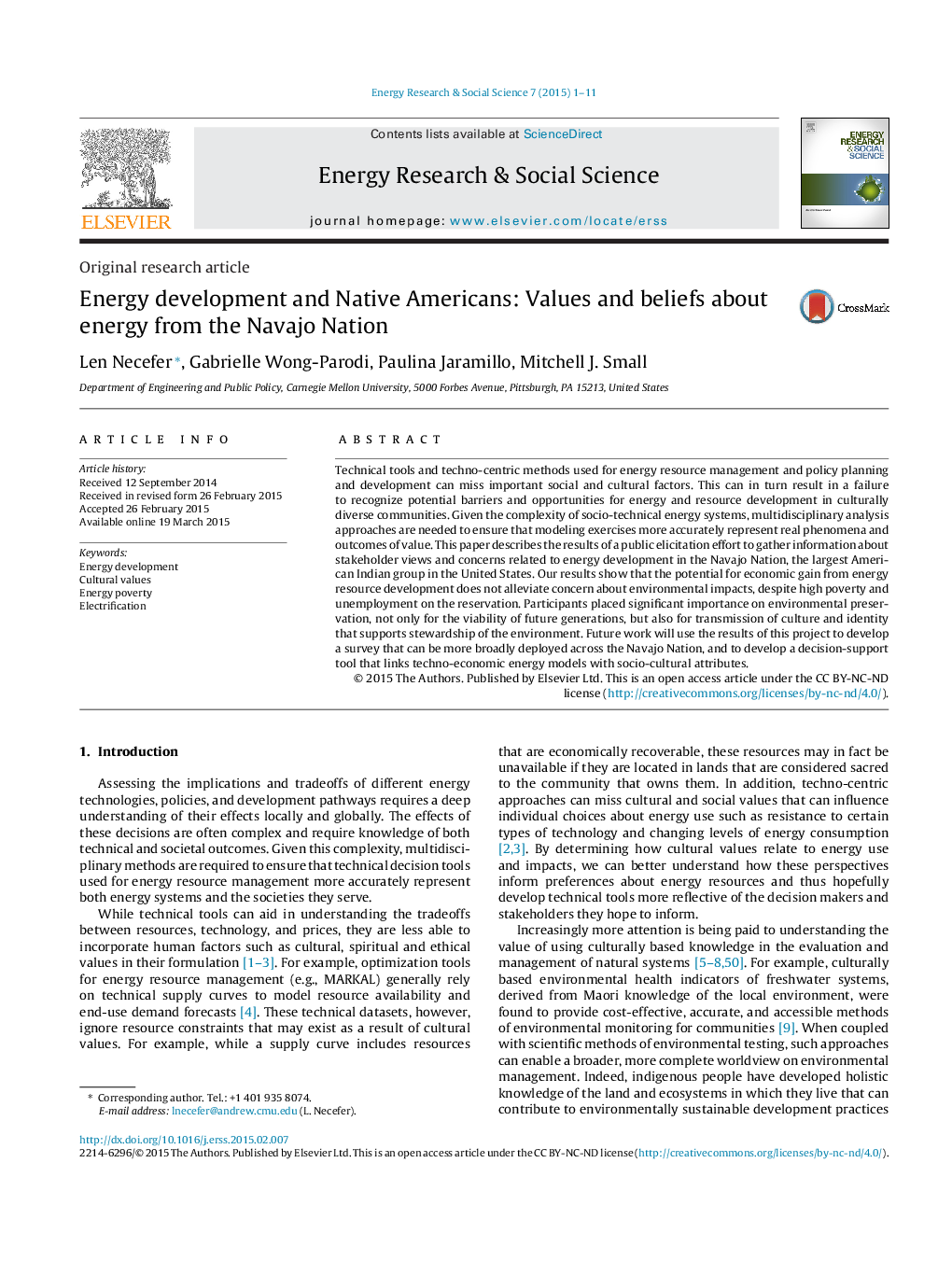| Article ID | Journal | Published Year | Pages | File Type |
|---|---|---|---|---|
| 6558856 | Energy Research & Social Science | 2015 | 11 Pages |
Abstract
Technical tools and techno-centric methods used for energy resource management and policy planning and development can miss important social and cultural factors. This can in turn result in a failure to recognize potential barriers and opportunities for energy and resource development in culturally diverse communities. Given the complexity of socio-technical energy systems, multidisciplinary analysis approaches are needed to ensure that modeling exercises more accurately represent real phenomena and outcomes of value. This paper describes the results of a public elicitation effort to gather information about stakeholder views and concerns related to energy development in the Navajo Nation, the largest American Indian group in the United States. Our results show that the potential for economic gain from energy resource development does not alleviate concern about environmental impacts, despite high poverty and unemployment on the reservation. Participants placed significant importance on environmental preservation, not only for the viability of future generations, but also for transmission of culture and identity that supports stewardship of the environment. Future work will use the results of this project to develop a survey that can be more broadly deployed across the Navajo Nation, and to develop a decision-support tool that links techno-economic energy models with socio-cultural attributes.
Related Topics
Physical Sciences and Engineering
Energy
Energy (General)
Authors
Len Necefer, Gabrielle Wong-Parodi, Paulina Jaramillo, Mitchell J. Small,
